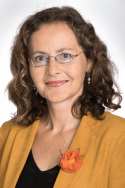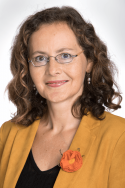Brach, C., Keller, D., Hernandez, L. M., Baur, C., Parker, R., Dreyer, B., Schyve, P., Lemerise, A.J. and Schillinger, D. (2012) 'Ten Attributes of Health Literate Health Care Organizations' Washington DC: Institute of Medicine of the National Académies.
Brach, C. (2017) 'The Journey to Become a Health Literate Organization: A Snapshot of Health System Improvement' Stud Health Technol Inform, 240, pp. 203–237.
DeGani, S., Nowak-Flück, D., Nicca, D. and Vogt D. (2020) 'Self-Assessment Tool to Promote Organizational Health Literacy in Primary Care Settings in Switzerland' International Journal of Environmental Research and Public Health. doi.org/10.3390/ijerph17249497.
Dietscher, C. and Pelikan, J.M. (2017) ‘Health-literate hospitals and healthcare organizations. Results from an Austrian feasibility study on the self-assessment of organizational health literacy in hospitals’ in Schaeffer, D. and Pelikan J.M. (eds.) Health Literacy, Forschungsstand und Perspektiven, Bern: Hogrefe, pp. 303-313.
Farmanova, E., Bonneville, L. and Bouchard, L. (2018) 'Organizational Health Literacy: Review of Theories, Frameworks, Guides, and Implementation Issues' Inquiry, 55. doi:10.1177/0046958018757848.
Henrard, G., Vanmeerbeek, M., Buret, L. and Rademakers, J (2019): Dealing with health literacy at the organisational level, French translation and adaptation of the Vienna health literate organisation self-assessment tool. BMC Health Services Research, 19 (146). doi:10.1186/s12913-019-3955-y.
International Working Group Health Promoting Hospitals and Health Literate Healthcare Organizations (Working Group HPH & HLO) (2019) 'International Self-Assessment Tool Organizational Health Literacy (Responsiveness) for Hospitals - SAT-OHL-Hos-v1.3-EN-international (updated 2023). Vienna: WHO Collaborating Centre for Health Promotion in Hospitals and Healthcare (CC-HPH).
Kickbusch I., Pelikan, J. M., Apfel, F., and Tsouros, A. D. (2013) Health literacy. The solid facts. Copenhagen: WHO Regional Office for Europe.
Pelikan, J.M. (2019) ‘Health-literate healthcare organizations’ in Okan, O., Bauer, U., Levin-Zamir, D. and Sorensen, K. (eds.) International Handbook of Health Literacy – Research, Practice and Policy across the Life-Span. Policy Press, pp. 539-554.
Trezona, A., Dodson, S. and Osborne, R.H. (2017) 'Development of the organisational health literacy responsiveness (Org-HLR) framework in collaboration with health and social services professionals' BMC Health Services Research,18 (694).
Trezona, A., Dodson, S., Fitzsimon, E., LaMontagne, A. D. and Osborne R. H. (2020) 'Field-Testing and Refinement of the Organisational Health Literacy Responsiveness Self-Assessment (Org-HLR) Tool and Process. Int. J. Environ. Res. Public Health 2020, 17 (1000). doi:10.3390/ijerph17031000.
Toolkits, guides and useful information in English
Health Literacy Universal Precautions Toolkit
Implementing the AHRQ Health Literacy Universal Precautions Toolkit: Practical ideas for Primary Care Practices
Organizational Health Literacy Toolkit
HeLLO TAS! Toolkit - Toolkit for Health Literacy Learning Organizations
Patient and family engagement module of the CUSP Toolkit
Building Health Literate Organizations: A guidebook to achieving organizational change
The Gippsland Guide to becoming a Health Literate Organization
Make it easy: a handbook for becoming a Health Literate Organization
NALA Guide on becoming Literacy Friendly Organization
A Checklist for Health Literate Organizations
Health Literacy Online: A guide for simplifying the user experience
Health IT Literacy Guide
The health literacy environment of hospitals and health centers: Making your healthcare facility literacy‐friendly
Making Health Literacy real: The beginnings of my organization’s plan for action
Health Literacy Framework: A guide to action
Health Literacy Review: A guide
“What did the doctor say?:” Improving Health Literacy to protect patient safety
Always Use Teach-back! Toolkit
Toolkits, guides and useful information in German
Praxisleitfaden zur Entwicklung einer gesundheitskompetenten Organisation
Methodenbox: Die gesundheitsbezogene Sozialversicherung
Make it easy: a handbook for becoming a Health Literate Organization
Toolbox - Gesundheitskompetenz im eigenen Bereich umsetzen

 M-POHL policy co-chair
M-POHL policy co-chair M-POHL research co-chair
M-POHL research co-chair International Coordination Center (ICC) of M-POHL and its projects
International Coordination Center (ICC) of M-POHL and its projects Project Coordination of the International Coordination Center (ICC) of HLS19
Project Coordination of the International Coordination Center (ICC) of HLS19